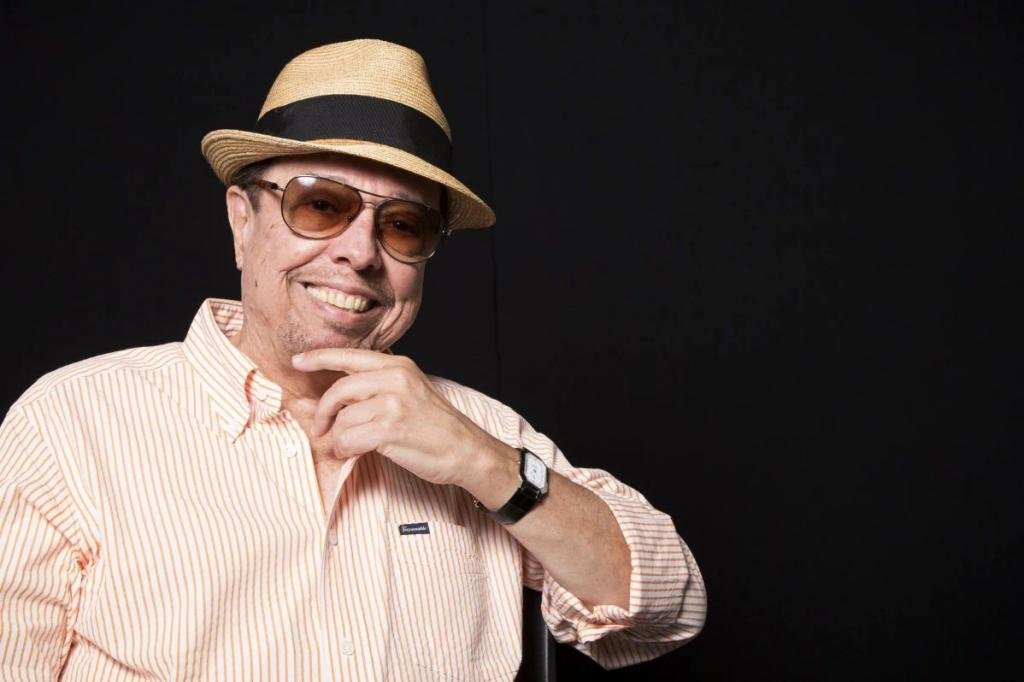
On Sergio Mendes’ website, sergiomendesmusic.com, is a quote that sums
up his six-decade career: “There’s a word in English that I love:
Serendipity. That’s the story of my life.”
The Brazilian pianist, composer and bandleader, who died September 5
at age 83, was known for fusing bossa nova (a variation of samba) and
pop, which became the signature sound of the most famous of his
ever-changing groups, Sergio Mendes & Brasil ’66.
The story of how Mendes recorded a cover version of Jorge Ben’s “Mas
Que Nada” with a young Lani Hall on lead vocals was a classic case of
coincidence and luck.
At the time, Mendes had been actively recording and performing with
other talented Brazilian musicians, including Joao Gilberto and
Antonio Carlos Jobim, and collaborating with American jazz artists
such as Stan Getz and Cannonball Adderley.
However, Mendes had a problem. He had been doing club gigs in the
United States but couldn’t get a good crowd. “I was fired,” he
recounted in a video posted on YouTube.
Then he chanced upon Hall, then 21 years old, who was singing in
another club, and was impressed. He wanted her to join his band, asked
her parents’ permission, and prepared to record a new album.
That was also the time he met Herb Alpert, the “A” in A&M Records, who
liked what he heard and proceeded to produce the album dubbed Herb
Alpert Presents Sergio Mendes & Brasil ’66, which opened with the
track “Mas que Nada.”
The album was a big hit, and Mendes went on to record over 30 more
albums and tour extensively worldwide. Alpert would marry Hall, and
Mendes would keep discovering new singers and changing band members.

What remained constant was, the hits kept coming. What Mendes
perfected in his albums was creating a good balance of
Brazilian-flavored music and classic pop.
Many of the songs he recorded were covers by the Beatles, Simon &
Garfunkel, Burt Bacharach, Paul Williams, James Taylor, Johnny Nash,
Stevie Wonder, and other stars back in the day. But Mendes transformed
these tunes, tweaking them to fit the Sergio Mendes sound — in the
process, “owning” them, too.
But there were other covers that stood out like Mendes himself wrote
them: Cole Porter’s “Night and Day”; “Like a Lover” (the English
version of “O Cantador”); “Pretty World” (Alan Bergman, Antonio
Adolfo, Marilyn Bergman, Tiberio Gaspar); “Hey Look at the Sun”
(written by Nelson Angelo, recorded by Sergio Mendes & Brasil ’77);
Jobim’s “Waters of March”; “The Trouble with Hello is Goodbye
(co-written by Dave Grusin, Alan Bergman, Marilyn Bergman); “Bridges”
(Milton Nascimento, Fernando Brant); and “Love City” (Marietta Waters,
Stevie Wonder).
In 2006, after an absence of eight years, Mendes recorded Timeless,
co-produced with the Black Eyed Peas’ will.i.am and featuring updated
versions of “Mas que Nada” and other tracks, sung by the likes of
Erykah Badu, Q-Tip, John Legend, Justin Timberlake, Wonder, will.i.am
himself, among others.
It was a wonderful way to refresh the memories of boomers like me, and
a cool manner to introduce Mendes to a new generation of music fans.
A few days ago, I listened again to “Mas que Nada” while on the road
on Edsa. In my mind I felt transported to a different time and place,
not necessarily the past, but more of my mood being uplifted, devoid
of stress or any form of worry.
“Mas que Nada,” written entirely in Portuguese, is said to literally
mean, “but that is nothing,” or “anyway,” or “whatever.” As for the
song itself, heck, who cares what it’s about?
All I know is, it makes me happy, right from the get-go as Mendes
strikes the piano keys in successive beats, followed by Hall’s
ascending vocals: “Oariá raiô, obá obá obá…”
Image credits: AP






